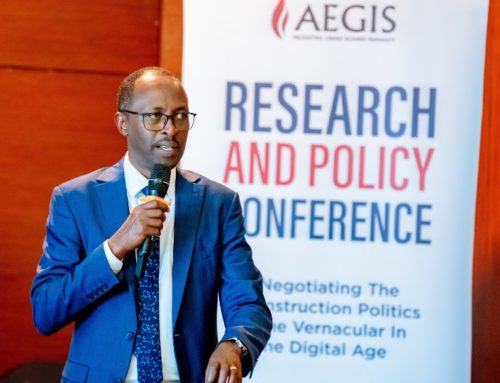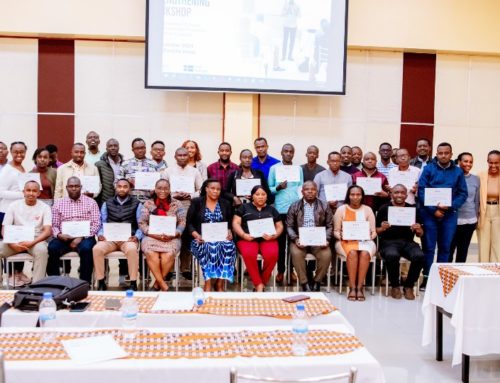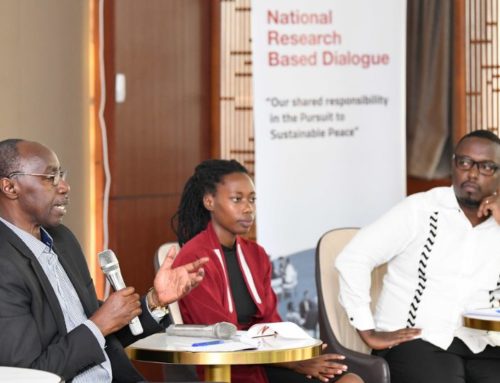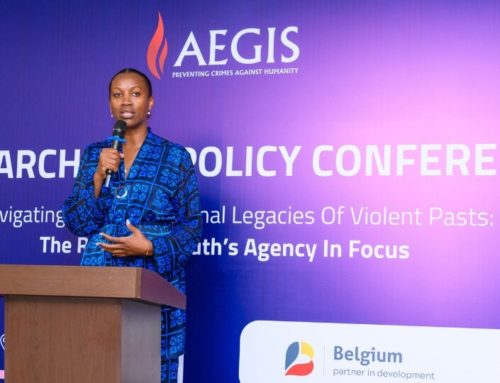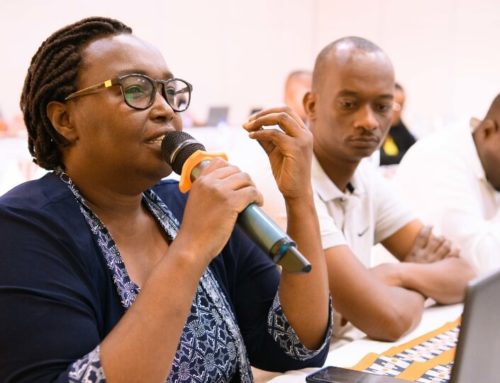Holocaust survivor, engineer and researcher Agnes Kaposi recently shared insights with Alice Wairimu Nderitu, Global President of the Isōko Centre for Humanity, and Freddy Mutanguha, CEO of the Aegis Trust, exploring how survivor experiences can inform innovative approaches to preventing atrocity crimes. Some highlights from their conversation are captured in the video above.
From Engineering to Understanding Human Harm
Kaposi brought her unique background to the conversation: “I worked as an engineer, and what engineering taught me was to solve every problem on two different levels; one, focusing on the individual problem that arises and also looking at the method of looking at this problem as an example of a broader range of problems.”
Using the scientific method, she applies systematic approaches to understanding genocide: “The engineering method is to then use the individual case as an example of the general. And that way I try to look at my experience with the Holocaust to penetrate the problem domain of other people’s similar difficulties.”
Introducing “Harmage”
Kaposi proposes a new term: “The new word is that of ‘harmage’. Harmage can mean pain of an individual, a group, a family, a nation; half of humanity, like women, who are being harmed in many situations, or a complete people or tribe.”
Advice for the Isōko Centre
Kaposi emphasized dual approaches: “Deal with any problem that you have, any situation, in the way that you have been doing before; but look at it in the broader context at the same time.”
She stressed engaging with extremists: “You should try to penetrate the domains of the bigots because they are dangerous. But don’t preach to them; don’t tell them ‘you are doing wrong’. Just create situations where they ask – they ask – questions from themselves.”
Bridging Survivor Experiences
Freddy Mutanguha expressed gratitude: “I’m so honoured to sit with you and share our experience, but at the same time, learn from your wisdom.”
Alice Wairimu Nderitu emphasized the significance: “It’s a real honour for me to be sitting between a survivor of the Holocaust and a survivor of the Ggenocide against the Tutsi, because there is so much to learn from your experiences.”
The conversation demonstrates how the Isōko Centre for Humanity builds bridges between different atrocity experiences, creating opportunities for shared learning and more effective prevention strategies.

